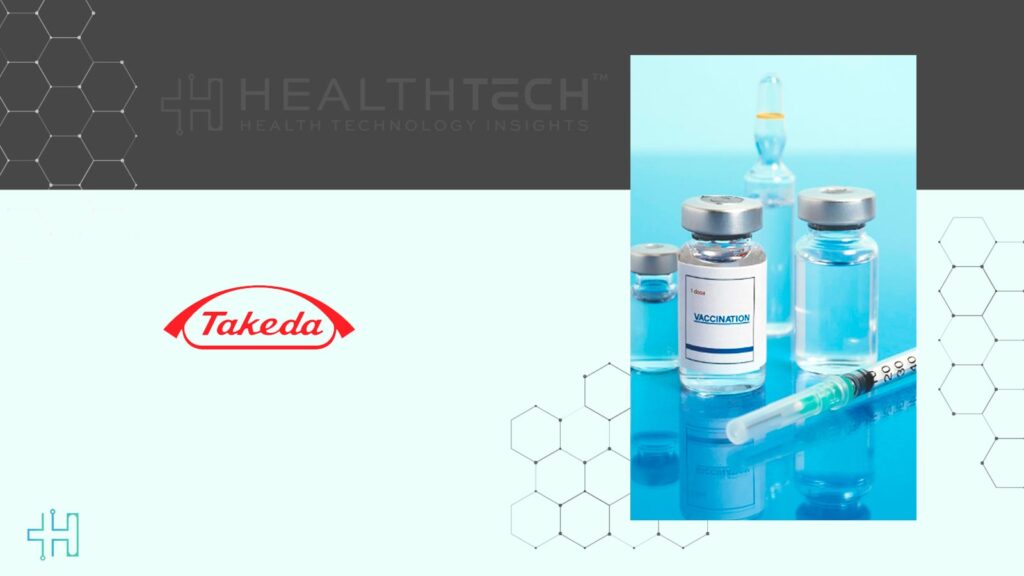Findings Reinforce QDENGA’s Long-Term Safety Profile and Two-Dose Vaccination Schedule
Takeda announced the completion of the 7-year pivotal Phase 3 Tetravalent Immunization against Dengue Efficacy Study trial evaluating its dengue vaccine, QDENGA Dengue Tetravalent Vaccine. These data, including an exploratory analysis of a booster dose, confirm the favorable benefit and risk profile of QDENGA and that the two-dose regimen provides sustained protection against dengue. This is consistent with its approved indications in multiple countries worldwide, which could simplify vaccination schedules and increase adherence.
Health Technology Insights: WebMD Ignite Launches Pulse to Help Health Systems Thrive in an AI Efficiency-First Era
“We are seeing an unprecedented surge in dengue, with over 14 million cases reported across more than 100 countries in 2024 alone, largely driven by the impacts of climate change and inadequate urbanization. Brazil, consistently among the countries most impacted by dengue, has contributed to the record-breaking number of dengue cases and rise in severity and deaths. This surge highlights the urgent need for prevention methods like QDENGA,” said Edson Moreira, M.D., Senior Researcher at Oswaldo Cruz Foundation, Brazilian Ministry of Health. “The inclusion of QDENGA in Brazil’s public vaccination program has reduced symptomatic dengue cases and dengue-related hospitalizations.”
Health Technology Insights: Amigo Establishes Medical Advisory Board and Appoints Dr. Jay Shah as Chief Medical Advisor
After 4.5 years, two doses of QDENGA provided 61.2% [95% CI: 56.0, 65.8] vaccine efficacy (VE) in preventing virologically confirmed dengue (VCD). A booster dose administered at 4.5 years only marginally increased efficacy to 74.3% [95% CI: 66.7, 80.1] after 2 years. QDENGA showed 84.1% [95% CI: 77.8, 88.6] VE in preventing dengue-related hospitalizations at 4.5 years, and VE remained consistently high at 90.6% [95% CI: 78.9, 95.8] after the booster dose.1,2 Overall efficacy was seen across all four dengue virus serotypes through seven years. No new safety signals were observed following the administration of a booster dose.
“QDENGA is the most comprehensively studied dengue vaccine, with more than 60,000 participants globally in the clinical program, and these long-term data highlight the durability of its safety and efficacy profile, across diverse populations worldwide,” said Derek Wallace, M.D., president of the Global Vaccine Business Unit at Takeda. “We are proud to have worked hand-in-hand with the clinical trial participants, collaborators and investigators whose contributions have been integral to the success of the TIDES trial and played a role in helping us move closer to a dengue-free world.”
Takeda continues to invest in post-marketing research through real-world evidence generation and ongoing pharmacovigilance to deepen understanding of the vaccine’s safety and impact. This includes an Impact Study in the municipality of Dourados, Brazil in partnership with the Dourados Health Department and a Brazilian researcher, as well as the DEN-401 study, an observational, post-authorization effectiveness study of QDENGA in children and adolescents in Southeast Asia.
Since its first approval in Indonesia in 2022, QDENGA has been authorized in 41 countries and 18.6 million doses have been distributed in 11 endemic countries as of September 2025. The World Health Organization added QDENGA to its List of Prequalified Vaccines underscoring its quality and suitability for public vaccination programs to help address the global dengue threat.
These data were presented at the World Society for Pediatric Infectious Diseases (WSPID) 14th Annual Congress on October 29, 2025. Takeda plans to share results from additional non-endemic booster studies at the American Society of Tropical Medicine and Hygiene (ASTMH) Annual Congress on November 11, 2025.
About the Phase 3 TIDES (DEN-301) Trial
The double-blind, randomized, placebo-controlled Phase 3 TIDES trial evaluated the safety and efficacy of two doses of TAK-003 in the prevention of laboratory-confirmed symptomatic dengue fever of any severity and due to any of the four dengue virus serotypes in more than 20,000 healthy children and adolescents 4-16 years of age. Study participants were randomized 2:1 to receive two doses of TAK-003 0.5 mL or placebo on months 0 and 3, administered subcutaneously. The study is comprised of five parts. Part 1 and the primary endpoint analysis evaluated VE and safety through 12 months after the second dose.3 Part 2 continued for an additional six months to complete the assessment of the secondary endpoints of VE by serotype, baseline serostatus and disease severity, including VE against hospitalized dengue.3 Part 3 evaluated VE and long-term safety by following participants for an additional two and a half to three years, as per World Health Organization recommendations. Part 4 evaluated efficacy and safety for 13 months following booster vaccination, and Part 5 evaluated long-term efficacy and safety for one year following the completion of Part 4.
The trial took place at sites across 8 dengue-endemic countries in Latin America (Brazil, Colombia, Panama, the Dominican Republic and Nicaragua) and Asia (Philippines, Thailand and Sri Lanka) where there are unmet needs in dengue prevention and where severe dengue is a leading cause of serious illness and death among children. Baseline blood samples were collected from all individuals participating in the trial to allow for evaluation of safety and efficacy based on serostatus. The Phase 3 TIDES trial is Takeda’s largest interventional clinical trial to date. Takeda and an independent Data Monitoring Committee of experts are actively monitoring safety on an ongoing basis.
Health Technology Insights: Ceipal Enhances Ceipal Healthcare To Deliver Faster Staffing Solutions
To participate in our interviews, please write to our HealthTech Media Room at info@intentamplify.com
Source- businesswire


